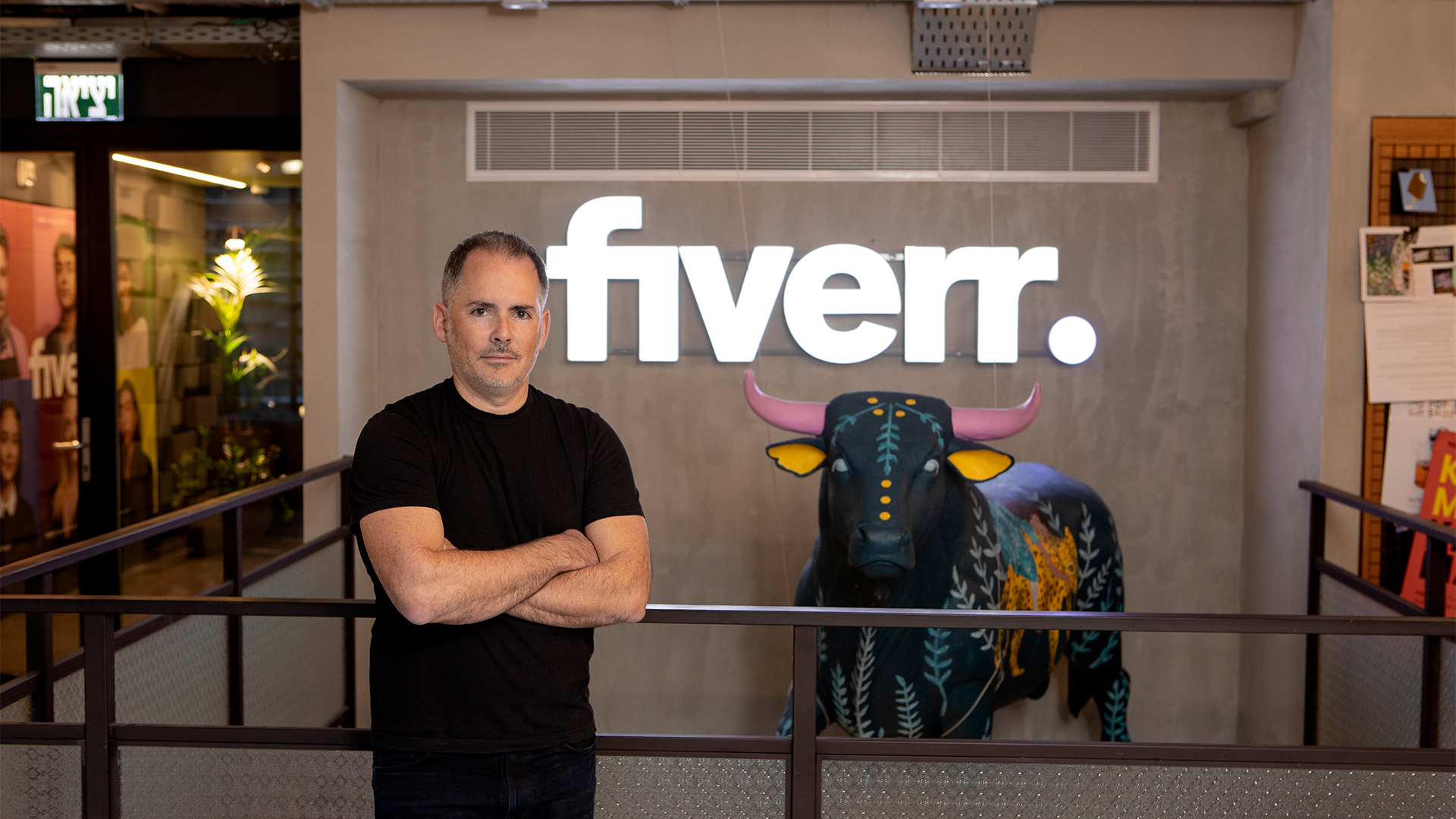‘Europe could do it, but it's chosen not to do it’: Eric Schmidt thinks EU regulation will stifle AI innovation – but Britain has a huge opportunity
Schmidt’s comments come after the US and UK refused to sign an international agreement on AI development


Former Google CEO Eric Schmidt has hit out at EU AI regulation, suggesting overburdening rules put European companies at an inherent disadvantage compared to global counterparts.
Speaking on the BBC Radio 4Today program, Schmidt said a combination of factors are hampering AI innovation in the region, including restrictive regulation and the natural “structure” of European markets.
Reflecting on his time at Google, Schmidt said he worked for “at least 10 years to try to get Europe up to the bar”, noting that lucrative talent pools on both the continent and in the UK give enterprises a prime opportunity to compete.
Regulatory barriers, however, are preventing the region from making any headway in the global AI race.
“The system doesn't work, right? They can't build big enough companies. The markets are not integrated. Partly it's just the structure of Europe, but it’s also that Brussels, in addition to promising uniform markets, also regulates in a particularly strong way,” he said.
“The result of this is that the AI revolution, which is the most important revolution in my opinion since electricity, is not going to be invented in Europe, and that's to Europe's disservice,” Schmidt added.
“Europe could do it, but it's chosen not to do it, and I'm really quite brutal on this.”
Get the ITPro daily newsletter
Sign up today and you will receive a free copy of our Future Focus 2025 report - the leading guidance on AI, cybersecurity and other IT challenges as per 700+ senior executives
Fair game in the US AI market
The situation is quite different across the Atlantic, Schmidt noted. The US’ approach to AI development stands in stark contrast to the European market, with lawmakers and enterprises alike engaged in a rabid race to the top.
With the Trump administration now in place in Washington DC, Schmidt pointed to a sense of burgeoning optimism among leading enterprises in the AI space, many of whom have invested billions of dollars thus far and intend to ramp up spending in the year ahead.
So far this year, Meta, AWS, Microsoft, and Google have all outlined plans to accelerate capital expenditure – and a key factor in this will be expanding AI infrastructure. Meta, for example, expected to spend upwards of $60 billion this year, marking a significant increase from $39 billion in 2024.
“When I looked at the swearing in with my friends behind the president I thought, ‘wow, we have arrived’ - and that doesn’t necessarily mean that we are going to be unregulated,” he said.
“It means the inverse in my view,” he added. “Everyone, starting with you, are watching what we're doing, which I view as a good thing.”
This doesn’t mean that the US will pursue a ‘Wild West’ approach to AI development, however. Instead, providing enterprises the regulatory flexibility to develop AI models and adopting a gentler approach is the ideal situation.
“The truth is that AI and the future is largely going to be built by private companies,” Schmidt said.
“It has to do with the incentives and the money, where the talent is, and how the world works, they're not going to be built in the equivalent of a Manhattan Project.”
Schmidt noted that it’s “really important that governments understand what we’re doing and keep their eye on us”.
“We’re not arguing that we should unilaterally be able to do things without oversight,” he added.
Schmidt has been highly vocal on the potential dangers posed by unchecked AI development in recent months, warning that systems could be used by bad actors for nefarious purposes ranging from biological warfare to cyber crime.
Britain has an opportunity to differentiate itself
While discussions over the potential barriers to AI innovation in Europe continue, Schmidt did point to the UK’s opportunity, suggesting it can differentiate itself from European counterparts.
The UK joined the US in refusing to sign an international agreement on sustainable AI development at this week’s global summit in Paris, prompting suggestions an ‘Atlantic rift’ is opening up on the topic of AI.
This decision was based on concerns that the declaration lacked 'practical clarity', officials said, particularly on the issue of global governance and national security.
The UK’s approach to AI has deviated from that in Europe, and the current government has made clear it hopes to position itself as a global leader on this front by attracting international investment and building out infrastructure.
RELATED WHITEPAPER

Notably, Schmidt said the UK has success stories to champion that will stand it in good stead.
“So some credit to Britain,” he said. “Much of the path to general intelligence was pioneered in King’s Cross in a building occupied by a subsidiary of Google called DeepMind by - now a Nobel Prize winner - Demis Hassabis.”
“What they have done is so extraordinary it should be a point of national pride,” Schmidt added. “It may be the most important thing that Britain has done in the last five years, in my opinion.”
Schmidt further hailed the government’s apparent pursuit US-style regulation, which involves consultation and close collaborative ties with industry.
“It looks to me like the pairing of the US and the UK is a winning strategy,” he said. “And it looks to me like the Europeans, because of Brussels, are being held behind.”
MORE FROM ITPRO
- Salesforce thinks the UK is ready to lead the next wave of AI
- Why the UK needs to look inward on AI legislation
- Google says UK needs policy step change to embrace its AI potential

Ross Kelly is ITPro's News & Analysis Editor, responsible for leading the brand's news output and in-depth reporting on the latest stories from across the business technology landscape. Ross was previously a Staff Writer, during which time he developed a keen interest in cyber security, business leadership, and emerging technologies.
He graduated from Edinburgh Napier University in 2016 with a BA (Hons) in Journalism, and joined ITPro in 2022 after four years working in technology conference research.
For news pitches, you can contact Ross at ross.kelly@futurenet.com, or on Twitter and LinkedIn.
-
 Bigger salaries, more burnout: Is the CISO role in crisis?
Bigger salaries, more burnout: Is the CISO role in crisis?In-depth CISOs are more stressed than ever before – but why is this and what can be done?
By Kate O'Flaherty Published
-
 Cheap cyber crime kits can be bought on the dark web for less than $25
Cheap cyber crime kits can be bought on the dark web for less than $25News Research from NordVPN shows phishing kits are now widely available on the dark web and via messaging apps like Telegram, and are often selling for less than $25.
By Emma Woollacott Published
-
 ‘AI is coming for your jobs. It’s coming for my job too’: Fiverr CEO urges staff to upskill or be left behind
‘AI is coming for your jobs. It’s coming for my job too’: Fiverr CEO urges staff to upskill or be left behindNews The latest in a string of AI skills warnings has urged staff to begin preparing for the worst
By Ross Kelly Published
-
 Anthropic ramps up European expansion with fresh hiring spree
Anthropic ramps up European expansion with fresh hiring spreeNews Anthropic has unveiled plans to further expand in Europe, adding 100 roles and picking a new EMEA head.
By Nicole Kobie Published
-
 "I LOVE this company!" Looking back on 50 years of tech giant Microsoft
"I LOVE this company!" Looking back on 50 years of tech giant MicrosoftOpinion There have been highs, lows, laughs and lots of success in the past 5 decades for the Redmond-headquartered firm
By Maggie Holland Published
-
 How simplicity benefits the IT partner ecosystem
How simplicity benefits the IT partner ecosystemSponsored Content Across private cloud and AI adoption, simple approaches can unlock more time and money for IT teams
By ITPro Published
-
 AI skills training can't be left in the hands of big tech
AI skills training can't be left in the hands of big techNews Speakers at Turing's AI UK conference lay out challenges to AI skills readiness
By Nicole Kobie Published
-
 The role of AI and cloud in true digital transformation
The role of AI and cloud in true digital transformationSupported Content Both cloud computing and AI technologies are vital to pushing your business forward, and combining them in the right way can be transformative
By Keumars Afifi-Sabet Published
-
 Generative AI adoption is 'creating deep rifts' at enterprises: Execs are battling each other over poor ROI, IT teams are worn out, and workers are sabotaging AI strategies
Generative AI adoption is 'creating deep rifts' at enterprises: Execs are battling each other over poor ROI, IT teams are worn out, and workers are sabotaging AI strategiesNews Execs are battling each other over poor ROI, underperforming tools, and inter-departmental clashes
By Emma Woollacott Published
-
 ‘If you want to look like a flesh-bound chatbot, then by all means use an AI teleprompter’: Amazon banned candidates from using AI tools during interviews – here’s why you should never use them to secure a job
‘If you want to look like a flesh-bound chatbot, then by all means use an AI teleprompter’: Amazon banned candidates from using AI tools during interviews – here’s why you should never use them to secure a jobNews Amazon has banned the use of AI tools during the interview process – and it’s not the only major firm cracking down on the trend.
By George Fitzmaurice Published